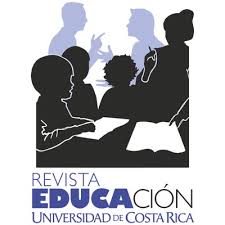Abstract
In the 1990s, the Universidad Veracruzana designed and implemented an educational model that produced important changes in the study plans. One of those changes included a new area of general training courses that had to be accredited in the first semesters of each career. The introduction of this new area altered the sequence of the curricula plans for each career. The objective of this article is to analyze the responses of the academics, to the new institutional dispositions and the organizational strategies that were formulated from their disciplinary frameworks in order to respond to the reform without neglecting the academic training of the students. Through a comparative and mixed methodological design, documentary information was recovered from the University's Integral Information System; a survey was designed for students and a semi-structured interview was applied to academics as key informants. To present the results, multivariate analysis techniques were used and the content of the interviews was analyzed. It was found that each career produces differentiated responses, which are configured based on the characteristics of their own discipline. This opens the debate on the way in which institutional policies are implemented without taking into consideration the disciplinary diversity and its modes of action. The results of the article allow us to acquire knowledge related to the social action of the academics through the answers they formulate towards the curricular changes and provide new elements for the analysis of the policies, tensions and conflicts that these produce.
References
Referencias extraídas
Acosta, A (2000) Estado, Políticas y Universidades en un Periodo de Transición. México: FCE-Universidad de Guadalajara.
Astin, J. (1997) What´s Matters in College. San Francisco: Jossey Bass.
Beltrán, J. (1999) Nuevo Modelo Para la Universidad Veracruzana. México: Universidad Veracruzana.
Becher, T. (2001). Tribus y Territorios Académicos. Barcelona, España: Gedisa.
Bourdieu, P. (1993) El sentido práctico. México: Taurus.
Bourdieu, P. (1995). Respuestas. Por una Antropología Reflexiva. México: Grijalbo.
Bourdieu. P. (2005) Homo Academicus. México: Siglo XXI
Bourdieu, P. (2013) La Nobleza de Estado. México: Siglo XXI.
Clark, B. (1991). El sistema de educación superior. México: Nueva Imagen/Universidad Autónoma Metropolitana-Azcapotzalco.
De Garay, A. (2004) Integración de Jóvenes en el Sistema Universitario. México: Pomares.
Grediaga, R. (2000). Profesión académica: disciplinas y organizaciones. Procesos de socialización y sus efectos en las actividades y resultados de los académicos mexicanos. México: ANUIES.
Ibarra, E., Cazés, D; y Porter, L. (2010) Las Universidades Públicas Mexicanas en el año 2030. México: UNAM.
Ritzer, G (1993) Teoría Sociológica Clásica. Estados Unidos: Mcgraw Hill.
Silva, M (2012) El primer año universitario entre jóvenes provenientes de sectores de pobreza: un asunto de equidad. México: ANUIES.
Torenbeek, M; Jansen, E; y Hofman, A (2010) The effect of the fit between secondary and university education on first year student achievement. Studies in Higher Education, 35, 659-675







